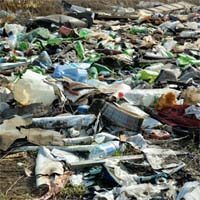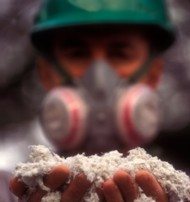Environmental Group Calls for Oversight of Asbestos in Personal Care Products
 Environmental experts say there’s a need for more oversight of asbestos in personal care products.
Environmental experts say there’s a need for more oversight of asbestos in personal care products.
Asbestos can cause malignant mesothelioma, lung cancer, asbestosis and other serious health problems.
Although the FDA says it is not allowed in personal care products, several retailers have gotten in trouble recently for traces of asbestos in personal care products. Some face lawsuits.
Why is Asbestos in Personal Care Products?
Asbestos is a naturally-occurring mineral that is heat resistant, won’t burn, and doesn’t corrode. It is also plentiful and inexpensive. There was a time when dozens of household products, from Christmas decor to hairdryers – contained asbestos.
But after the government learned about the link between asbestos and mesothelioma, they passed strict rules about asbestos in personal care products.
Retailers are not deliberately putting asbestos in personal care products. The problem is that many of these products contain talc which can be laced with asbestos.
Talc and asbestos often lie close together in the earth. Mining them can cause cross-contamination. When companies buy tainted talc and do not properly test it, the result can be asbestos in personal care products.
Experts Warn of Mesothelioma Danger
In testimony before Congress today, Scott Faber of the Environmental Working Group said the FDA needs to do more about asbestos in personal care products.
Recent FDA tests found asbestos in three talc-based products sold by the retail chain Claire’s. Claire’s pulled several kinds of children’s cosmetics off the shelves last year because they could pose a mesothelioma risk.
“EWG has found more than 2,000 cosmetics and other personal care products that contain talc, including more than 1,000 loose powders or pressed powders that could pose a risk of being inhaled,” said Faber.
Even a small amount of asbestos in personal care products could trigger malignant mesothelioma decades later.
History of Asbestos in Personal Care Products
Manufacturers knew about the possibility of asbestos in personal care products as early as the 1950s. And the problem is not confined to cosmetics.
Several companies that produce loose talcum powders, including Johnson & Johnson, have been sued by people claiming their powder caused mesothelioma.
Asbestos causes more than 2,500 mesothelioma deaths in the US each year. But the EWG says the government is not doing enough to protect consumers from mesothelioma.
“No category of consumer products is subject to less government oversight than cosmetics and personal care products,” Faber told Congress.
The EWG says legislators will soon introduce a cosmetics reform bill that could improve the problem of asbestos in personal care products.
Source:
Formuzis, Alex, “More Oversight Needed for Cosmetics Made with Talc”, March 12, 2019, https://www.ewg.org/release/more-oversight-needed-cosmetics-made-talc





